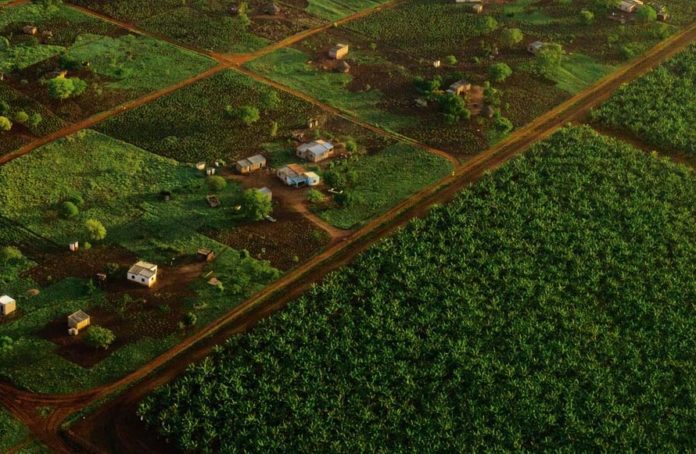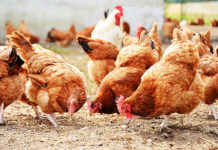Researchers have discovered that while large-scale farming in Africa may improve global food security, they have, however, noted that the system deteriorates the continent’s food security and erodes trust among local farmers.
The researchers strongly feel the system needs a fundamental rethink.
According to academics; Tim Wegenast and Cecile Richetta, in the years leading to the Covid-19 pandemic, healthy diets were already becoming increasingly unaffordable in Africa.
“Long before the shocks of the last few years, there has been something fundamentally wrong with modern food systems. As well as measures to mitigate the current crisis, we urgently need to rethink the ‘business as usual’ of global food production,” the academics argue in a paper published last week.
They added many approaches to food security are deeply flawed and driven by entrenched interests.
“Large-scale agricultural investments are among them. Their proponents advocate for more land, greater mechanisation, and the use of high-yield crops and other inputs to combat hunger and promote development.”
Wegenast and Richetta said in prioritising the interests of large agricultural companies in Africa over small-scale farmers, the initiative had failed to alleviate hunger, malnutrition, and poverty.
“It disintegrated less than 10 years in. Nonetheless, other projects such as the Alliance for a Green Revolution in Africa (AGRA) have stuck to a neo-productivist agenda embedded in tech-driven solutions and foreign capital with equally dire results.
In fact, the Global South – and particularly Africa – has experienced a surge in large-scale agricultural investments.”
According to the Land Matrix Observatory, over 12 million hectares – an area approximately the size of Malawi – have been acquired by foreign or domestic investors in Africa since 2000.
Deals for another 4 million hectares are planned.
“These contracts often target wetter regions where there is a high prevalence of smallholder and community land. Large-scale businesses who take over this land commonly replace traditional food crops with biofuels, fodder, and export-oriented cash crops such as palm oil and sugar cane.”
The academics added; “They focus on more profitable food exports rather than local consumption. It is perhaps not surprising therefore that academic researchers in 2021 found that large-scale agricultural investments may improve global food security, but they deteriorate local food security.
“As well as hampering nutritional security in poor regions, research has also found that the global land rush negatively impacts rural societies in other ways.”
They said by eroding common property systems, changing rural labour regimes, and promoting intrafamilial disputes, large-scale land investments seem to be cannibalising one of the most important human assets: the capacity to trust one another.
Wegenast and Richetta then came up with a number of recommendations, including that transparency over large land deals needed to be enforced and not simply wished.
In a 2022 report by the Land Matrix, 78% of all the African large-scale land acquisitions assessed had failed to satisfactorily implement the UN Food and Agriculture Organisation’s Voluntary Guideline on the Responsible Governance of Tenure.
Secondly, stricter conditionality should be imposed on corporations buying land.
“These could demand the promotion of local employment such as through flexible job schemes and local content policies. They could ensure that deals exclusively focus on fallow land, rather than forested areas or regions hosting small-scale agriculture.
“They could stipulate that food crops are prioritised over, say, biofuels or fodder. And they could contain provisions that would better protect customary land and communal access to unused spaces and trees,” Wegenast and Richetta said.
The third priority, according to the academics, should be given to investments that encourage crop diversity, employ agricultural practices that restore fallow – and unused – land, generate sustainable local income, and provide ecosystem services.
The academics are also advocating for better integration of modern and traditional food systems.
“Cost-effective agricultural practices such as ‘Zai holes’, intercropping, or traditional organic composting should be better acknowledged and more readily incorporated when trying to set up climate change-resilient farming.
“Indigenous and local farming knowledge can help modern agricultural systems become more resilient. Large-scale land projects should not ignore these repositories of wealth.”
Wegenast is adjunct professor of International Politics at the University of Konstanz in Germany while Richetta is a PhD candidate and teaching assistant at the University of Geneva’s Department of Political Science and International Relations.








